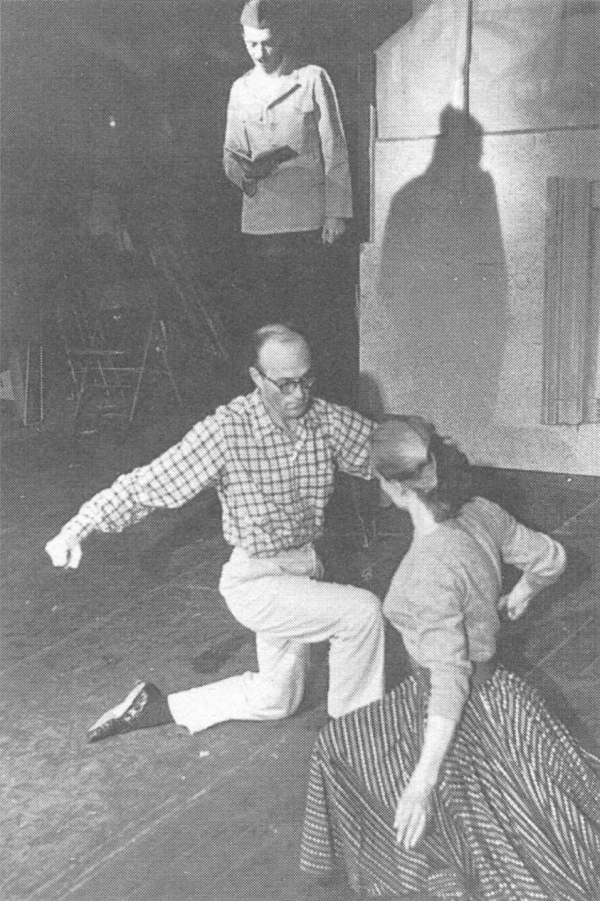In July 1955, Weldon Kees' car was found near the Golden Gate Bridge, and no one ever saw or heard from him again.
In January of that year, Kees and one of his best friends in San Francisco, the poet Michael Grieg, conceived of putting on a theatrical poetry reading they deemed the Poets' Follies. The Follies were a sort of poetic revue, with Keyes at the piano and a jazz ensemble of poets, actors, dancers and other artists sitting in. Lawrence Ferlinghetti read. The poetry was accompanied by interpretive dance. Kees and Grieg even managed to cajole a local stripper to stop by and recite some Eliot, Elinor Wylie, and Sara Teasdale.
Whom did Weldon Kees choose to read thay night? Why, Henry Reed, of course.

Weldon Kees (in uniform), reading "Unarmed Combat." From Vanished Act: The Life and Art of Weldon Kees, by James Reidel. Lincoln, NE: University of Nebraska Press, 2003.
Kees was a contemporary of Reed's; in fact, they were born only two days apart. Kees certainly read a great deal of poetry: he was a book reviewer and critic for the Partisan Review, The New Republic, and Time. Kees probably felt a special affinity for Reed, whose first book arrived in the States in 1947, full of promise, and who was never heard from again.







